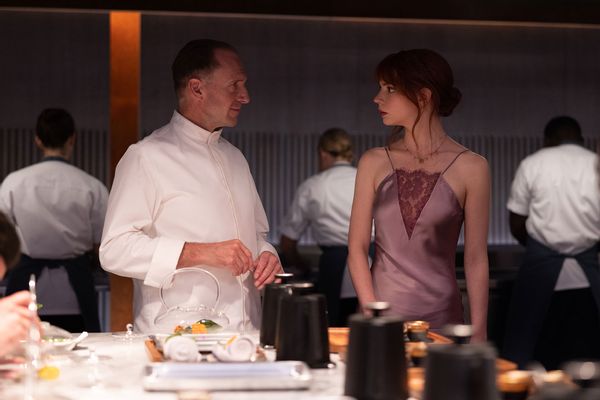
Dark comedy horror "The Menu," starring Ralph Finnes, Anya Taylor-Joy and Nicholas Hoult, follows a group of wealthy foodies who travel to an exclusive, remote destination restaurant.
The cult-like devotion of the staff towards the celebrated chef who runs the restaurant, however, soon reveals a more sinister game afoot.
While "The Menu" plays with anxieties about food, it is more emphatically about the restaurant trade. It draws on a long tradition of horror films about creative artists who are driven mad by the demands of critics and consumers.
In films such as "Mysteries of the Wax Museum" (1933), "The Phantom of the Opera" (1962) and "Theatre of Blood" (1973), artists not only take revenge on those who consume their labor (agents, critics and consumers) but also turn these victims into the materials of art. They become elements in the production process rather than consumers of its products.
This explains why "The Menu's" mad Chef Slowick (Fiennes) is so distressed when he discovers an uninvited guest, Margot (Taylor-Joy), at the meal. He "has to know whether you are with us or with them" – one of his brigade of producers or one of the consumers.
As it transpires, Margot is actually an escort. She is very much not "one of them" (the elite customers of the restaurant), but rather is more like the chef and staff providing a service in the restaurant.
Dining as a "theatrical experience"
As the evening progresses, the behavior of the kitchen staff demonstrates the dehumanizing discipline and sacrifice necessary to produce food for the elite. Their devotion to Slowick meanwhile, hovers between that of a proletarian army in revolt against its oppressors and the legions of the undead commanded by figures of aristocratic despotism such as Dracula.
"The Menu's" concern with class and the distinction between the service worker and the elite customers that they serve is also dealt with through its depiction of cooking. Like many high-end restaurants, Slowick's establishment features an open kitchen, meaning the meal is not just about the food consumed, but an example of dining as a "theatrical experience."
This "theatrical experience" is how increasingly grim events are explained away. They're merely part of the intellectually challenging experience offered to patrons. But it also brings out another aspect of class distinction: a question of taste.

French sociologist Pierre Bourdieu describes the taste of elite social classes as "a systematic refusal of all that is 'human' . . . starting with everything that reduces the aesthetic animal to pure and simple animality, to palpable pleasure and sexual desire." Or, one might add, food that purely satisfies hunger.
On the one hand, then, Slowick's behavior pushes the tastes of his elite clientele to their logical conclusion. He starts with a refusal of "ordinary" pleasures, such as satisfying their appetites, but soon moves on to a sadistic exercise in the control and punishment of the body. Slowick takes the elite dining experience beyond refusal of the appetite into the intellectually challenging – discomfort, punishment and torture.
Refusing the refusal
Of course, the greatest affront to distinction within the high-end restaurant is to complain of still being hungry – or worse still, to demand the cooking of that which haute cuisine refuses.
It is when Margot requests a simple burger and fries – a meal a world away from Slowick's intellectually challenging haute cuisine – that "The Menu" boils over into its dramatic climax.
Mark Jancovich, Professor of Film Studies, University of East Anglia
This article is republished from The Conversation under a Creative Commons license.







